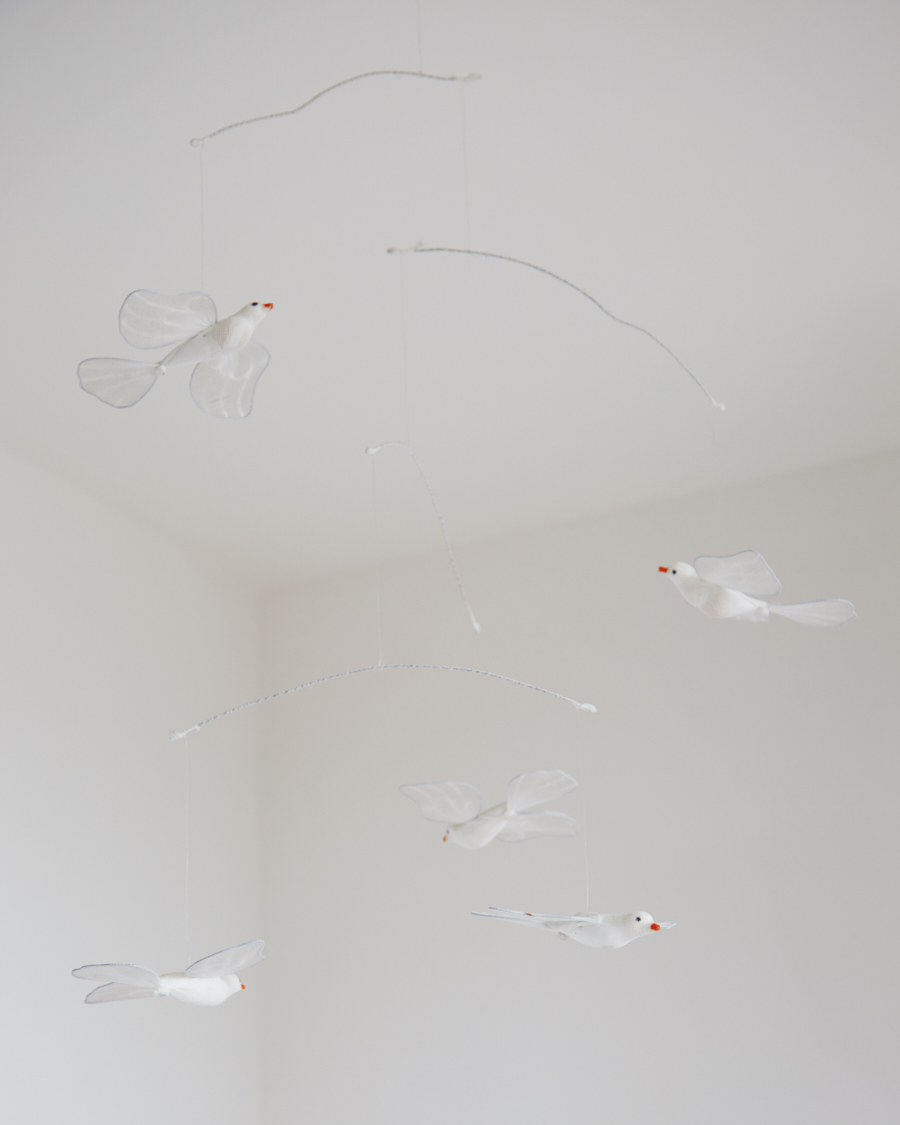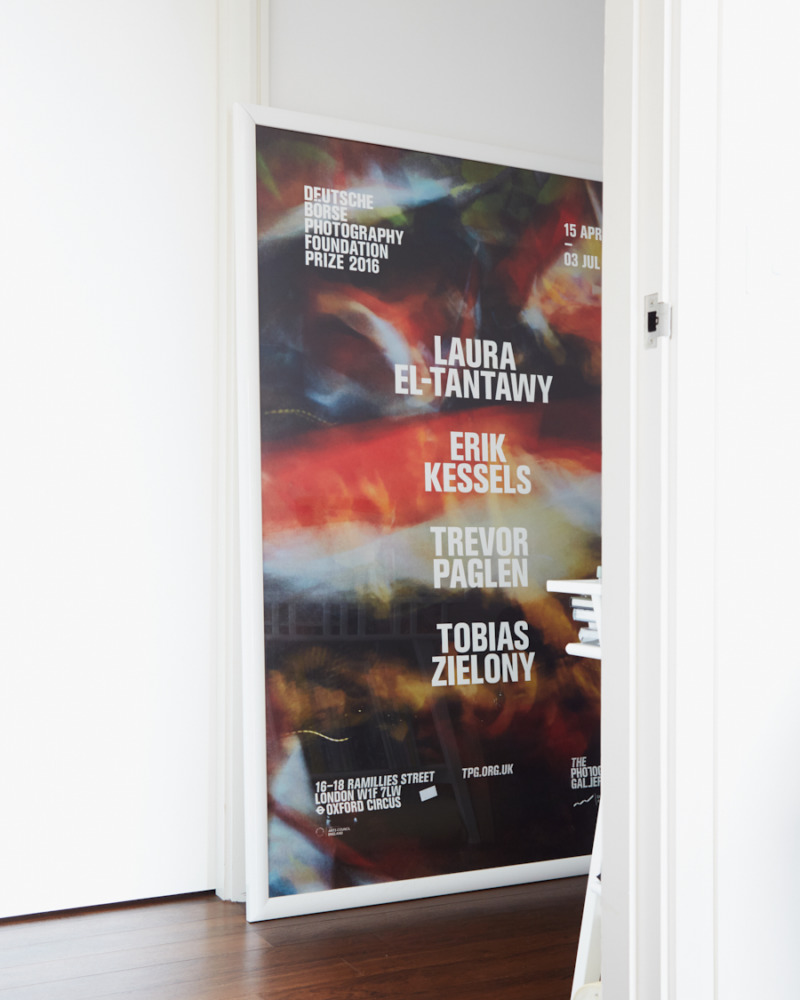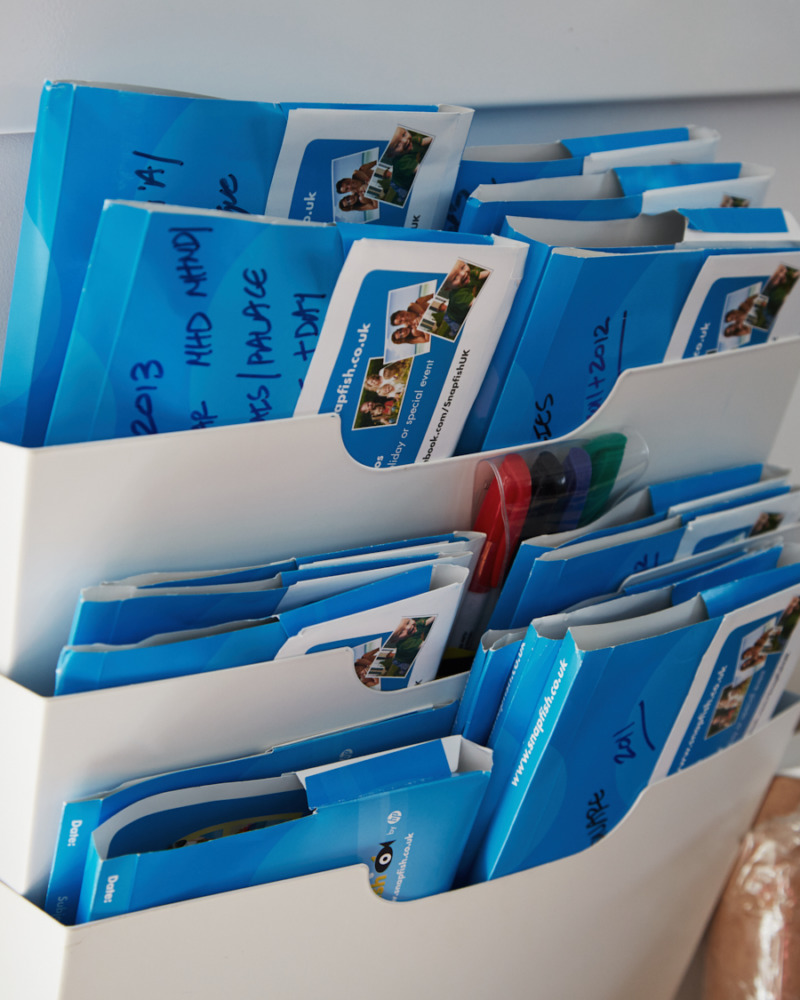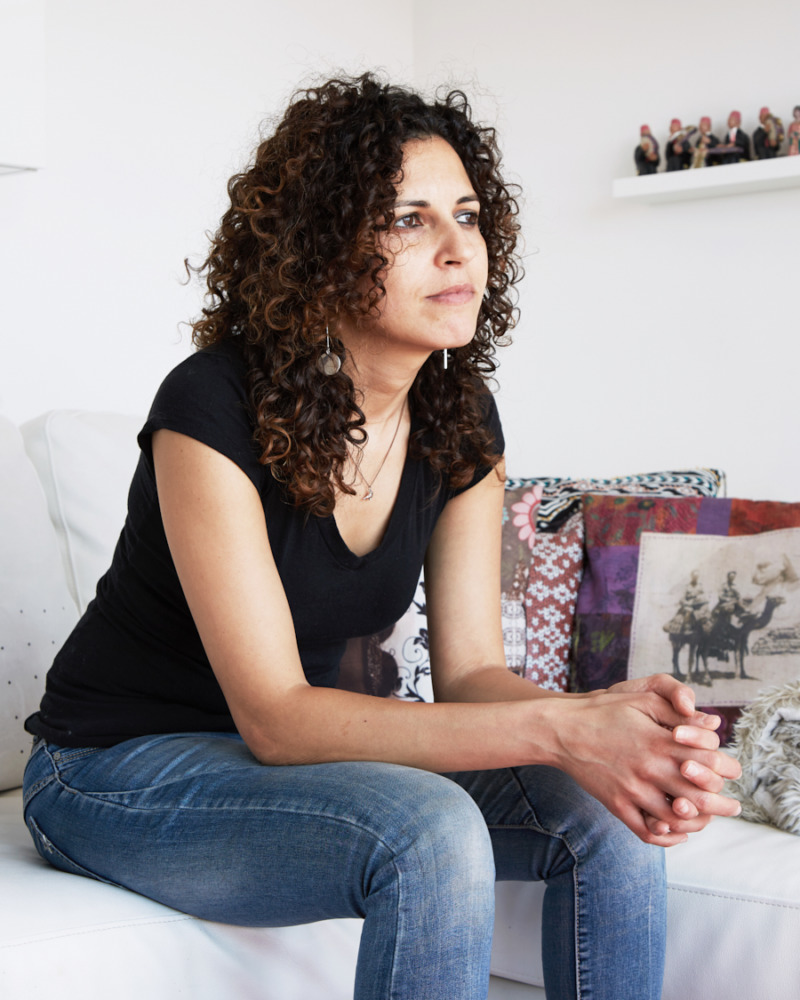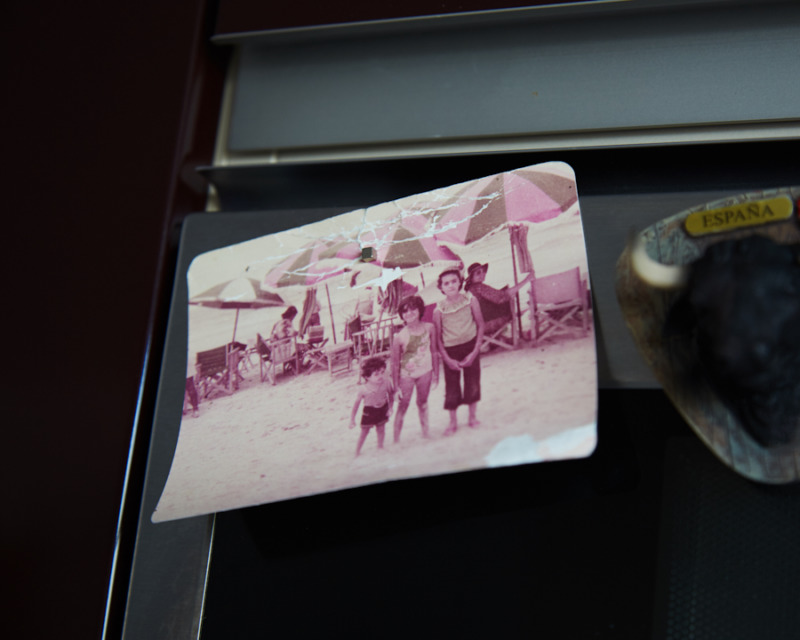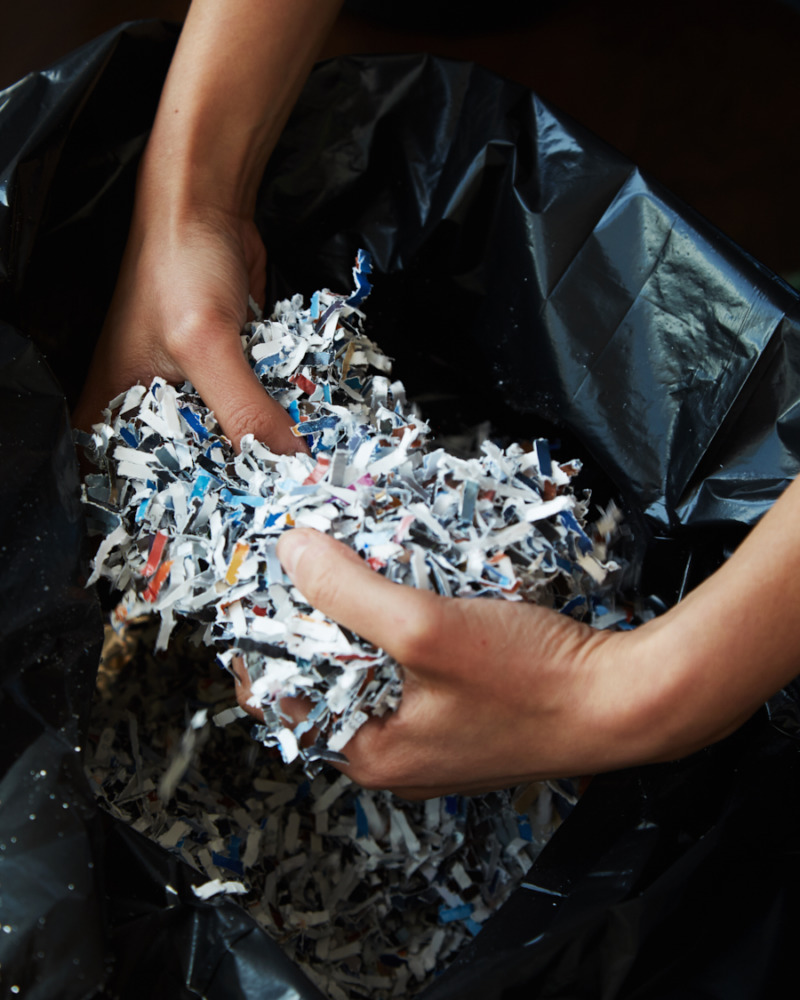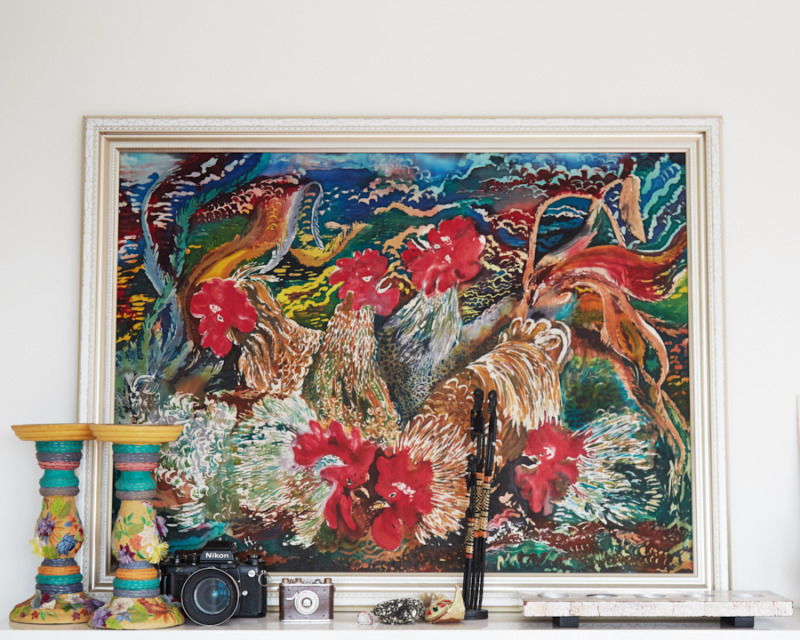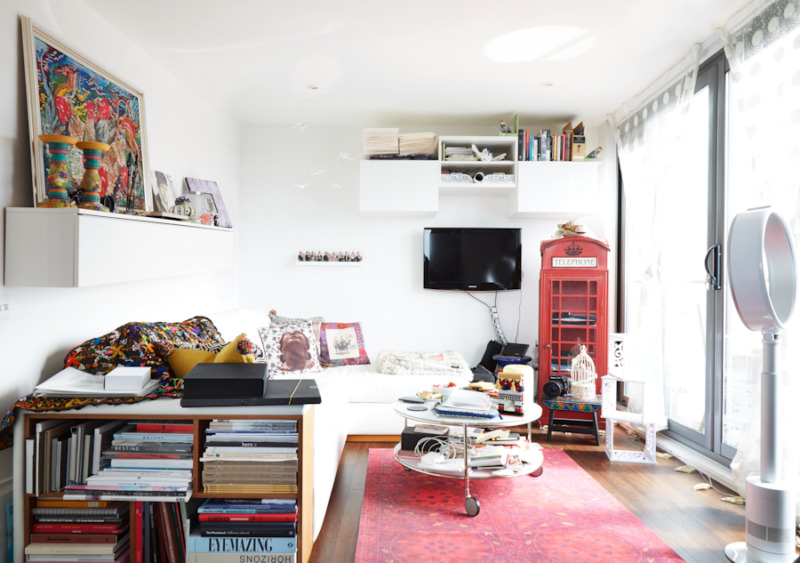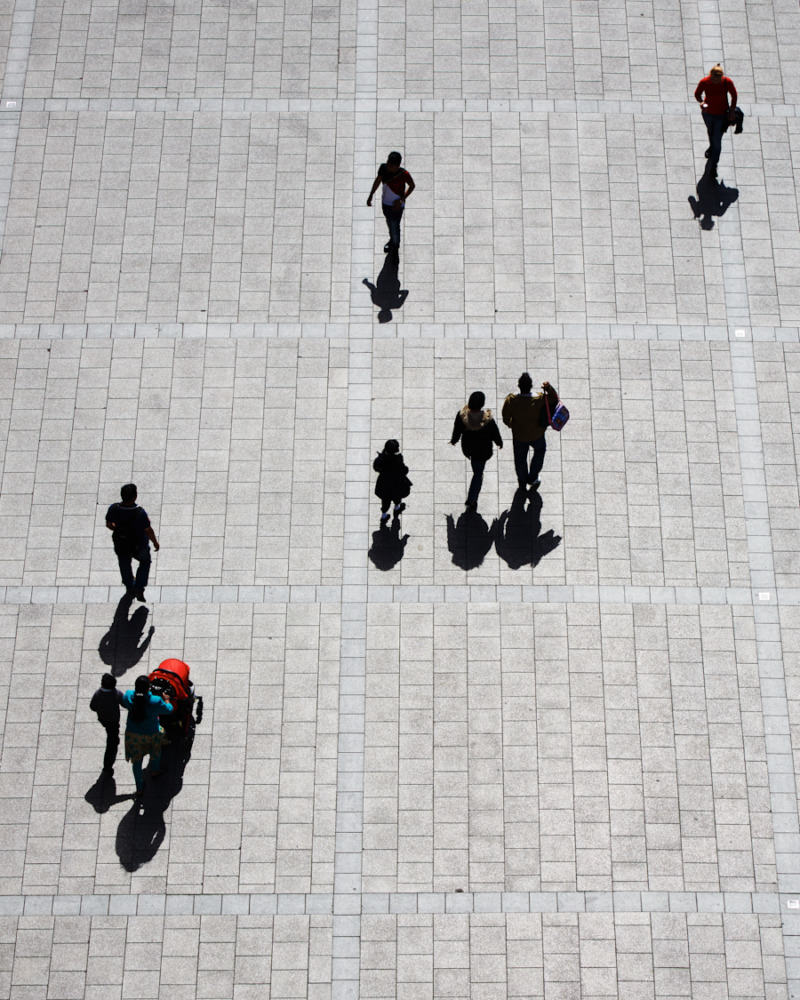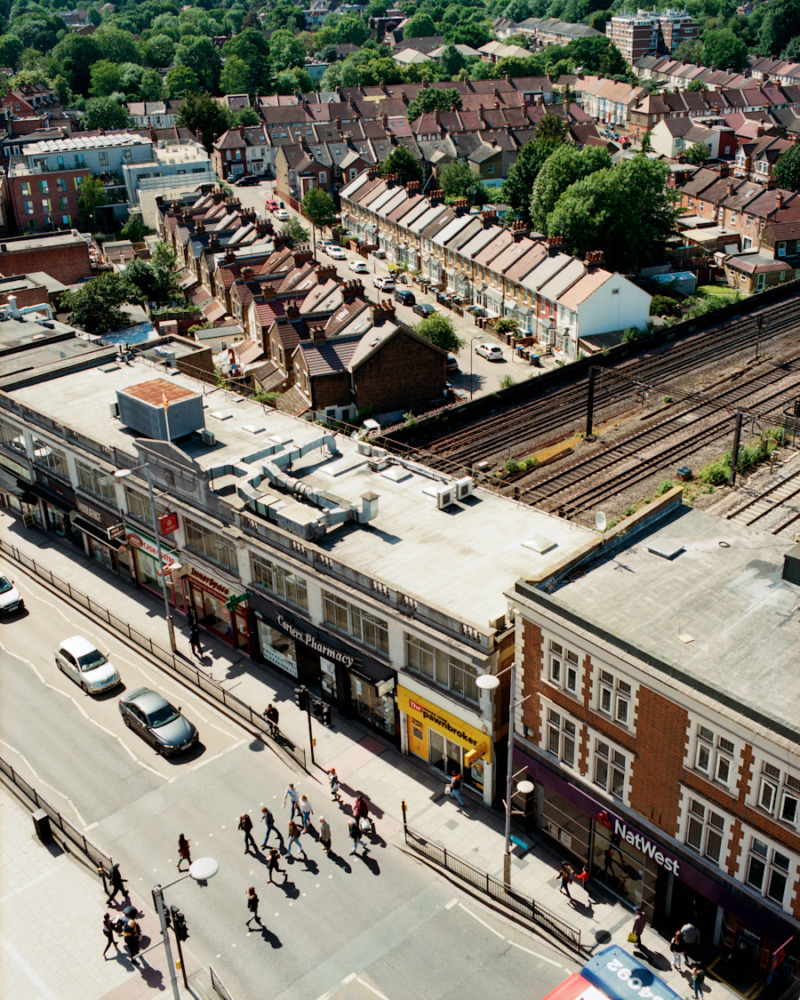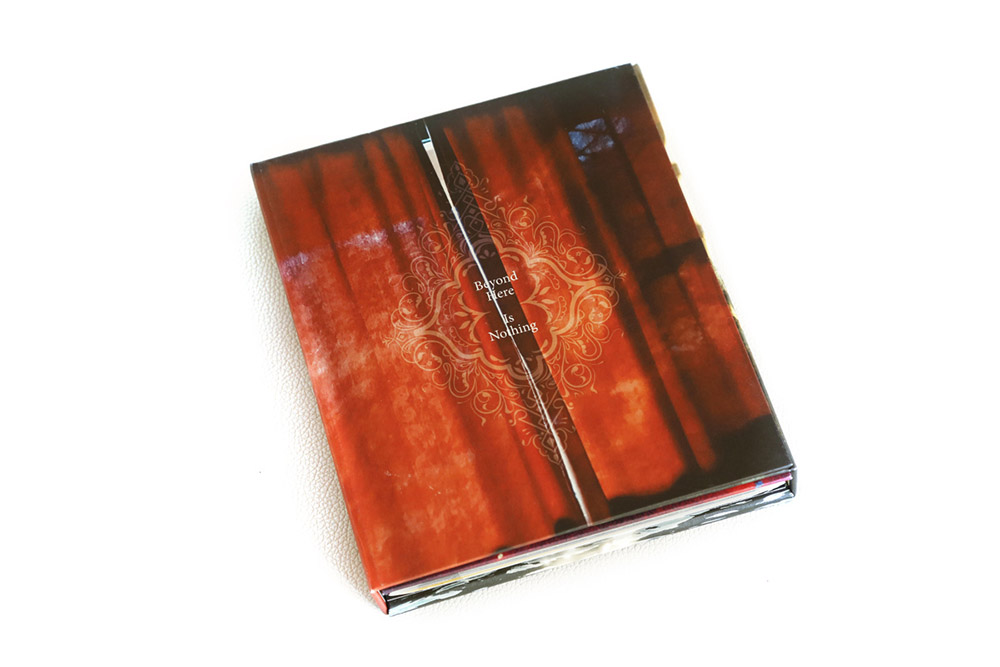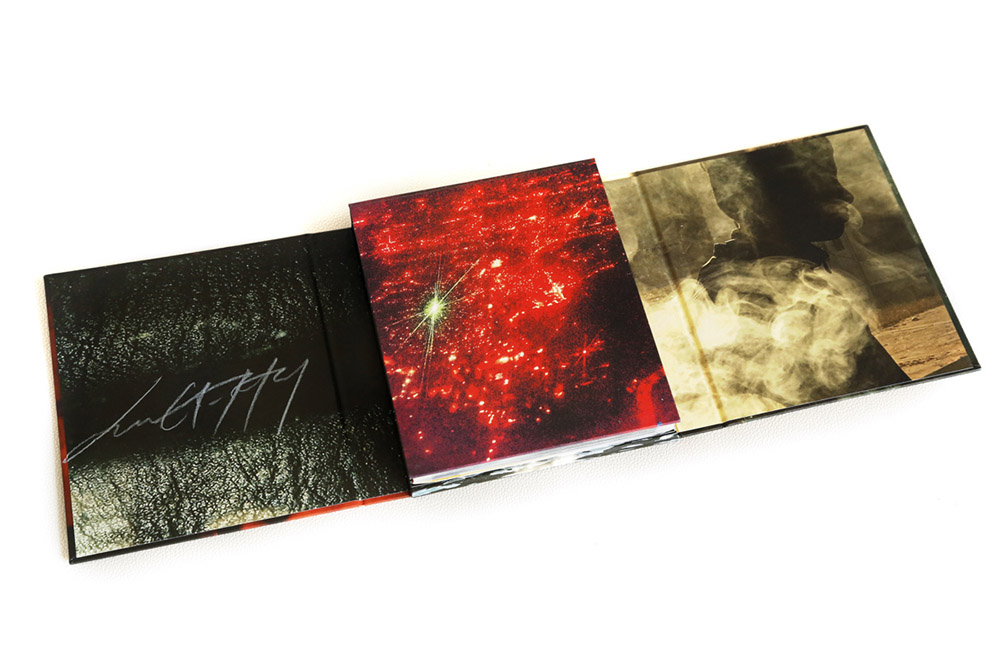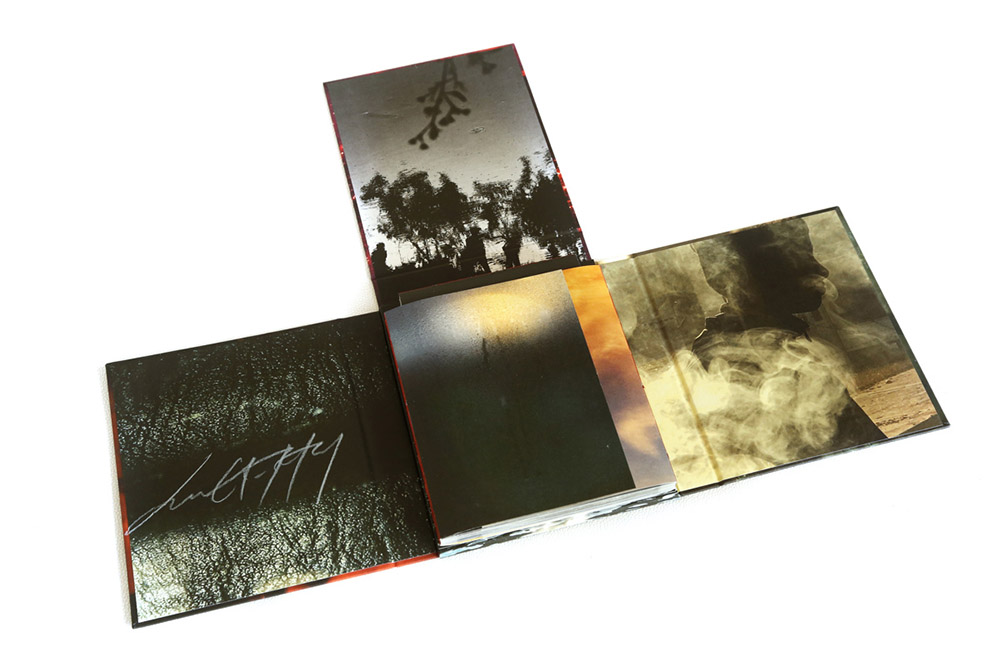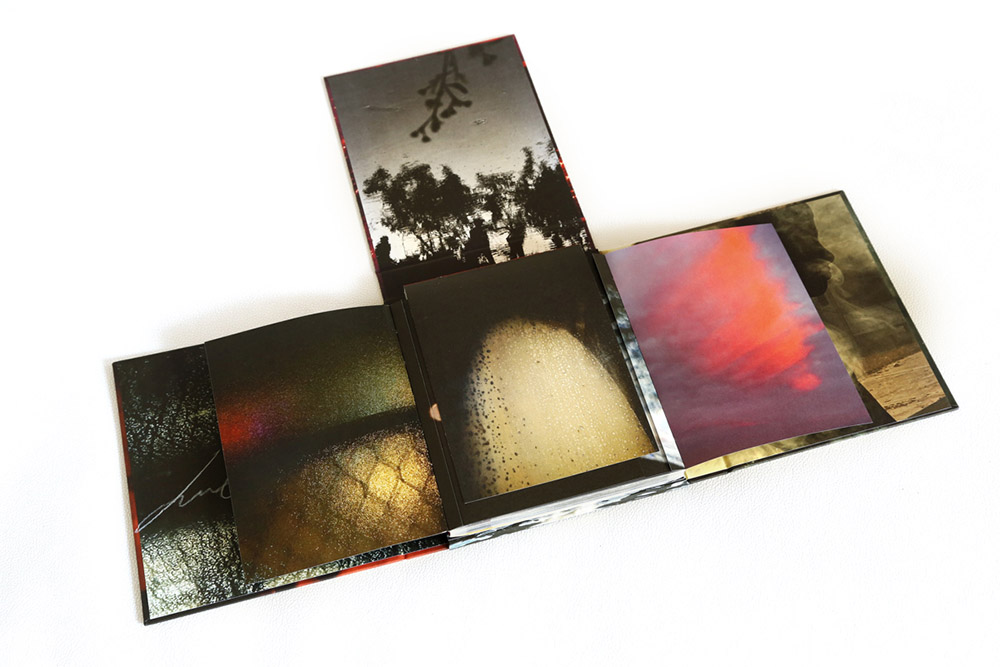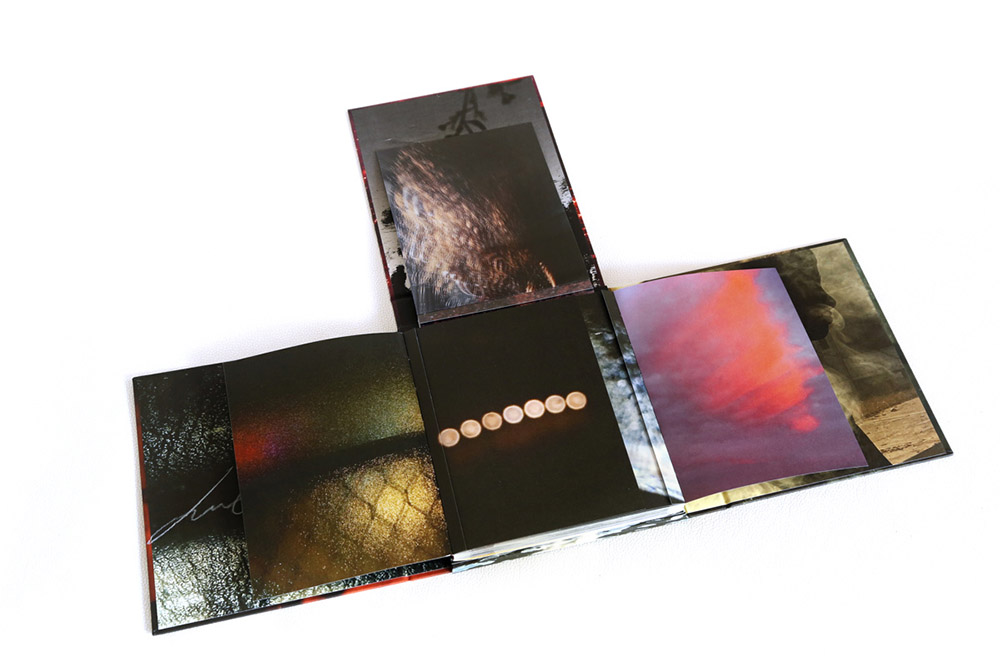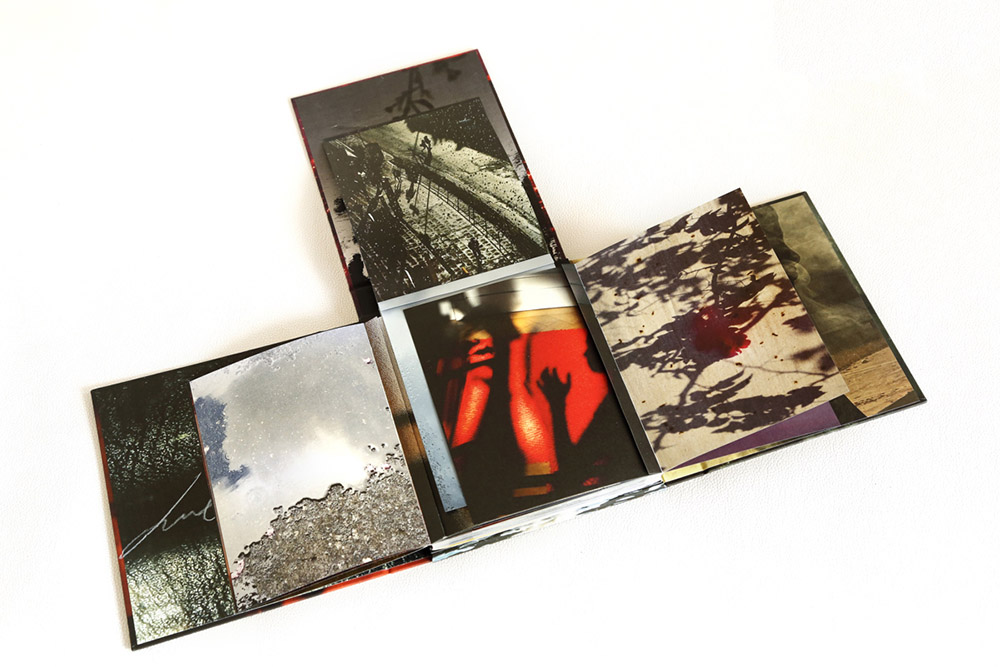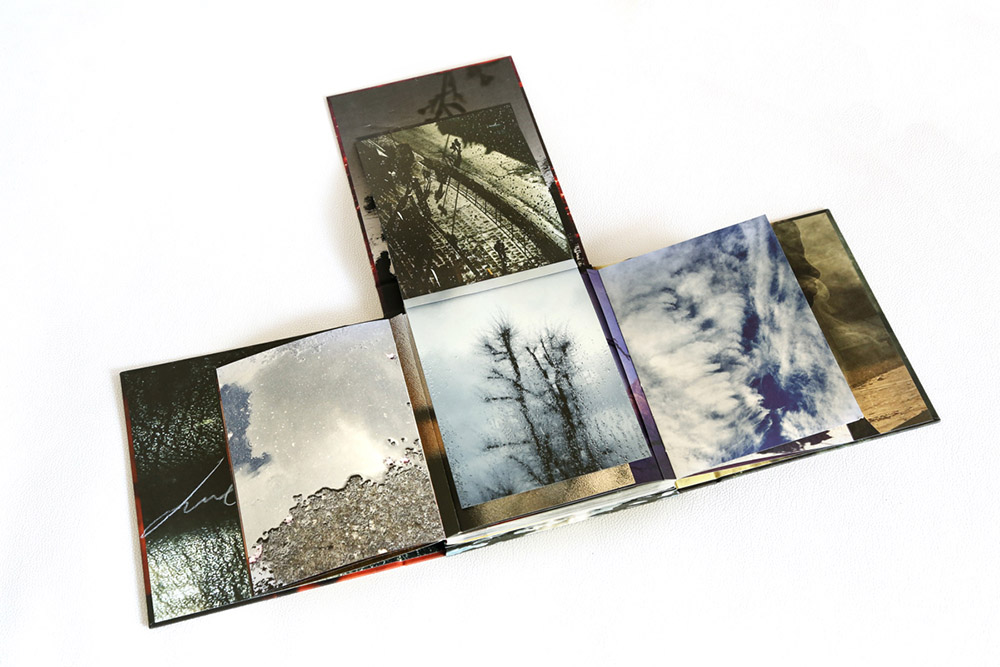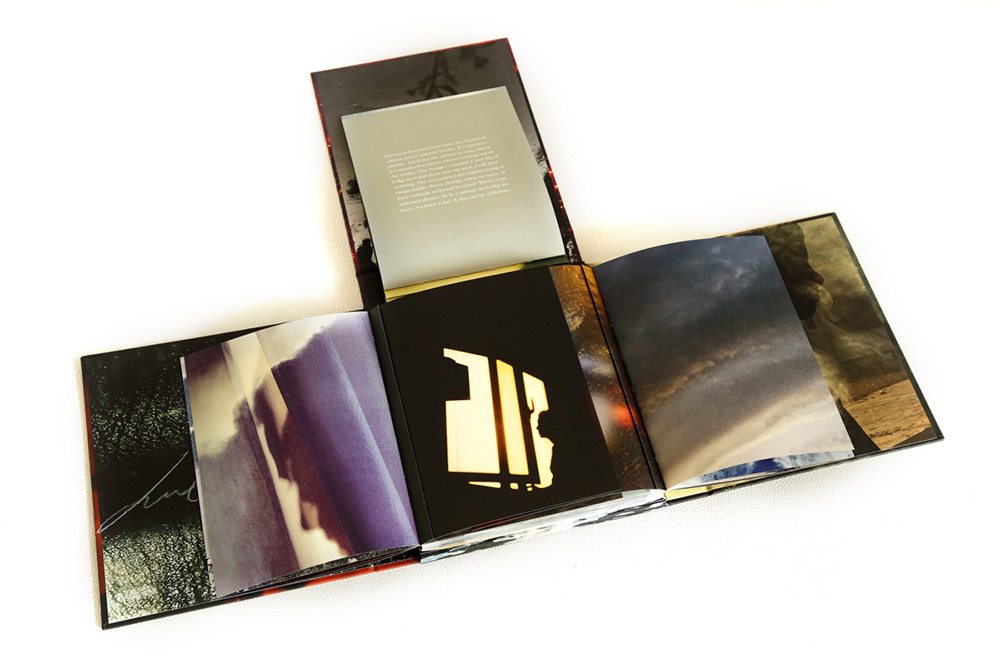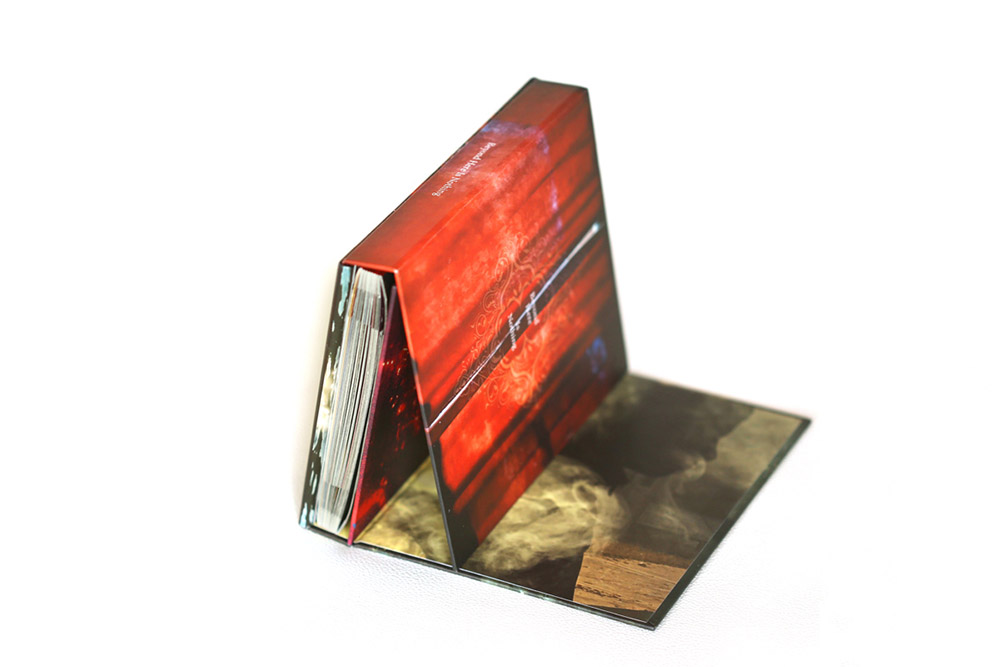Studio Visit – Laura El-Tantawy
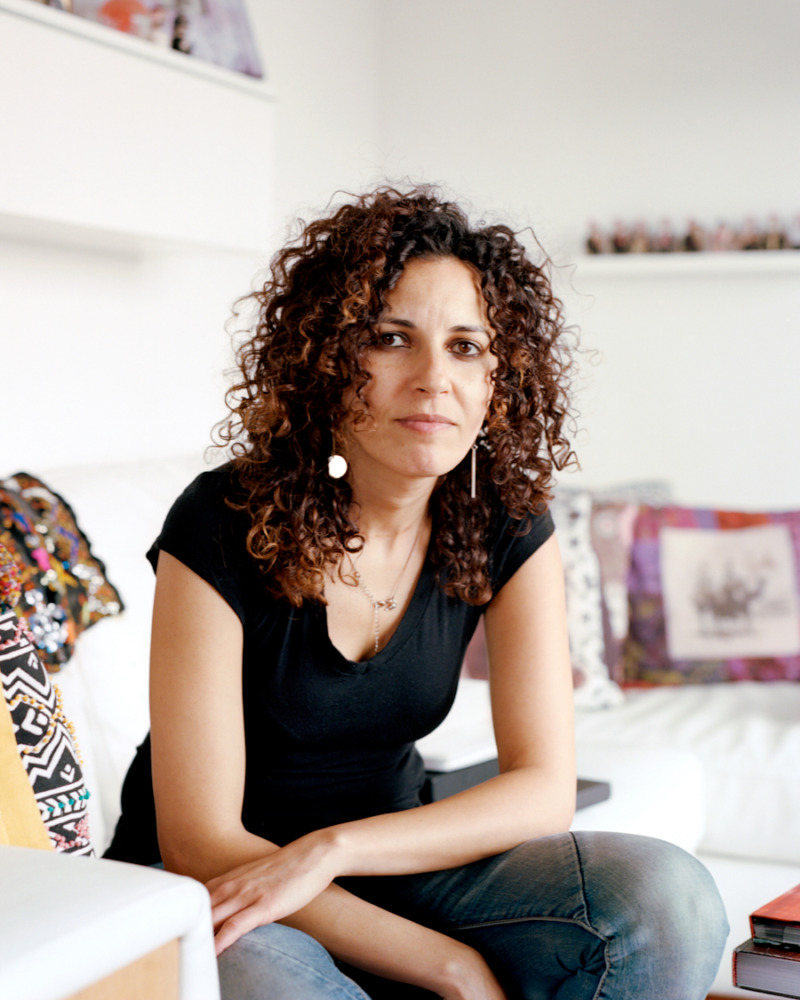
After studying politics and journalism, Laura El-Tantawy picked up a camera in order to tell stories in a different medium. Initially working as a photojournalist she went freelance in 2006, self-funding all of her projects to allow herself absolute autonomy over what she produces. Her photos carry a rare luminosity; they blur the line between the abstract and the figurative. It’s in this overlapping space that they become imbued with intense human emotion.
Laura is drawn to document stories across the globe that are rooted in humanity. Her work I Will Die For You (2011-) documents the plight of Indian farmers who commit suicide, and those the family they leave behind, due to their dire financial situation. It’s both poetic and shocking, drawing on the primeval connection humans have with nature, and posing the question whether this ancient symbiotic relationship can be retained in the reality of post-industrial globalisation.
Last year, Laura received a Deutsche Boerse Photography Foundation Prize nomination for her first book In The Shadow of the Pyramids (2015), bringing her work to a wider audience. In The Shadow of the Pyramids weaves together photos from the her family’s photo album with images of grassroots movements and protests in her Egyptian homeland that culminated in the Egyptian Revolution of 2011.
Being invisible ties into my photography… the more invisible you are the more accessible it is to make pictures
It is perhaps this work that epitomises her approach, an intensely personal narrative enmeshes with a larger political event to create a bold statement.
For her most recent work Beyond Here Is Nothing (2017), Laura reflected inward, documenting her peripatetic lifestyle. Constantly in transition and moving across borders she considers the inevitable loneliness inherent in this uniquely modern existence. It’s a life recognisable to many a freelancer in this globalised world, where social networks have replaced home communities. Mobile devices have enabled this lifestyle and so it’s fitting Laura has used her iPhone for much of the image making. The book comprises folded and interchangeable pages, allowing the reader to construct their own path through the work. In this labour it deftly reflects the fragmented and scattered reality we now inhabit and is reminiscent of our interaction with and formation of social media timelines.
It comes as no surprise then, that for Laura there is no definitive marker between her home and studio. Paper Journal visited Laura at her apartment, a welcoming space dotted with keepsakes and special possessions, from a miniature red telephone box used for storage to a sequinned textile from Egypt. We sat down to delve a little deeper into her a work and her life.
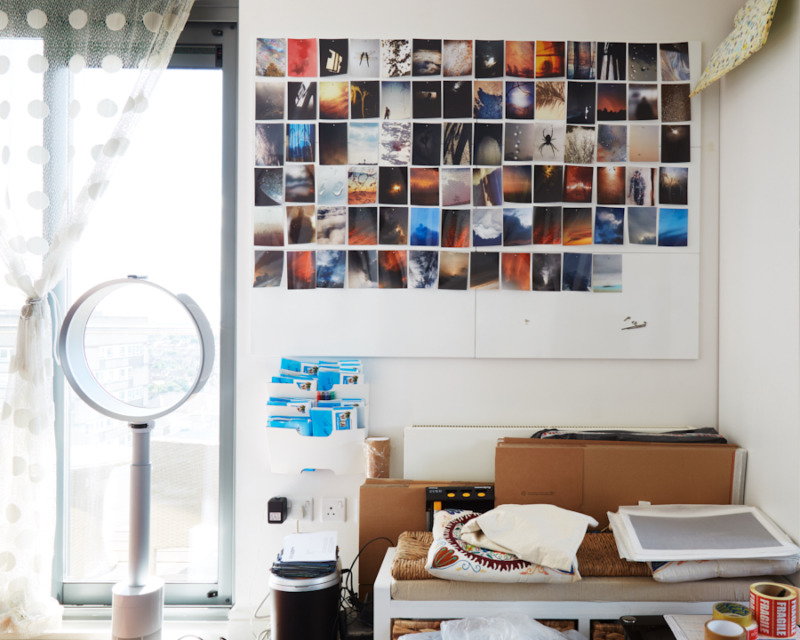
You moved a lot when you were younger, could you describe your childhood?
It’s not unusual for Egyptian families to have moved around. In the late 80s and early 90s a lot of Egyptian professionals left for the Gulf following a big boom in the region. My father was a doctor and my mother a teacher, given I was the youngest child I went with them. In a way though it started before that as when I was born my parents were living in England. My parents were studying and my 2 older sisters were here with them. I was born right at the end of their time in the U.K and I was 5 months old when we moved back to Egypt. For most of my adult life I have been between places. Moving around, particularly between America and England, it does always feel like I am in transition. I don’t feel like London is where I will be for the rest of my life.
Are you in London often?
Less than half of the year. When people ask me where I live I always say London but with some hesitation. Not that I don’t like it, I love it. But I feel if I say this is my home this is where I am going to end up, distancing myself from it I know I am always going to be in transition to somewhere else.
Do you research your subjects before photographing them?
No, it’s not the way I work. For Beyond Here Is Nothing there was no research needed. With , the research was actually within me. As an Egyptian you carry these things with you, politics is a part of your life, even from when you were a child. I prefer reacting spontaneously and making images that I didn’t expect. And even when I am making images I am not entirely sure whether this is what I want or not. For me this has always been the appeal of photography, if I know for sure what I am going to do and what it is going to look like, I wouldn’t make the work.
Editing is very important in my work. It’s when a lot of images I didn’t expect to have come out. The spontaneous aspect of photography really appeals to me. Look around you everything is so defined. It’s within the boundaries of this reality. I already know this, it’s boring for me. I prefer working outside of that, outside that expectation. For me this is what is interesting about photography, because it provides that alternative to the expected. You can capture something totally unexpected.
Beyond Here Is Nothing (2017), self published, all spreads courtesy of the artist
So you like to move away from defined structures and ideas, maybe even about society?
When I was working on In the Shadow of the Pyramids, what was happening in Egypt had been defined in the realm of politics and social movements. But I was never consciously working to document that. I was trying to capture whatever I was responding to at that moment. I wasn’t trying to put a label on it. I was photographing a human story that was very important to my generation, to me personally, to my family.
How do you feel the definition of freedom differs across the countries you have lived in?
I immediately think in terms of freedom as a woman. In Egypt you can’t be invisible as a woman, add a camera and you become very prominent and people perceive you as a threat.
Living in the UK or living in America I have always felt invisible and I love that. I love that people don’t care. Especially as you find yourself in the opposite situation in Egypt where you are conspicuous, and it doesn’t matter how you dress you are always going to be very visible.
Being invisible ties into my photography, it gives me more room to be able to exist as a photographer making pictures in the documentary tradition where people are not aware you’re there. The more invisible you are the more accessible it is to make pictures.
What draws you to a subject?
There has to be a personal connection. It makes the work more honest and I feel like I have something to say. It could be a really small connection with I Will Die For You, for example, my grandfather was a farmer, so that’s how I connected with the subject. Even though I never met my grandfather, my father tells me stories about his life.
My books are chapters of my journey of where I am, they relate to each other, even though visually they are different. This journey has become a photographic journey but it could become something else in the future.
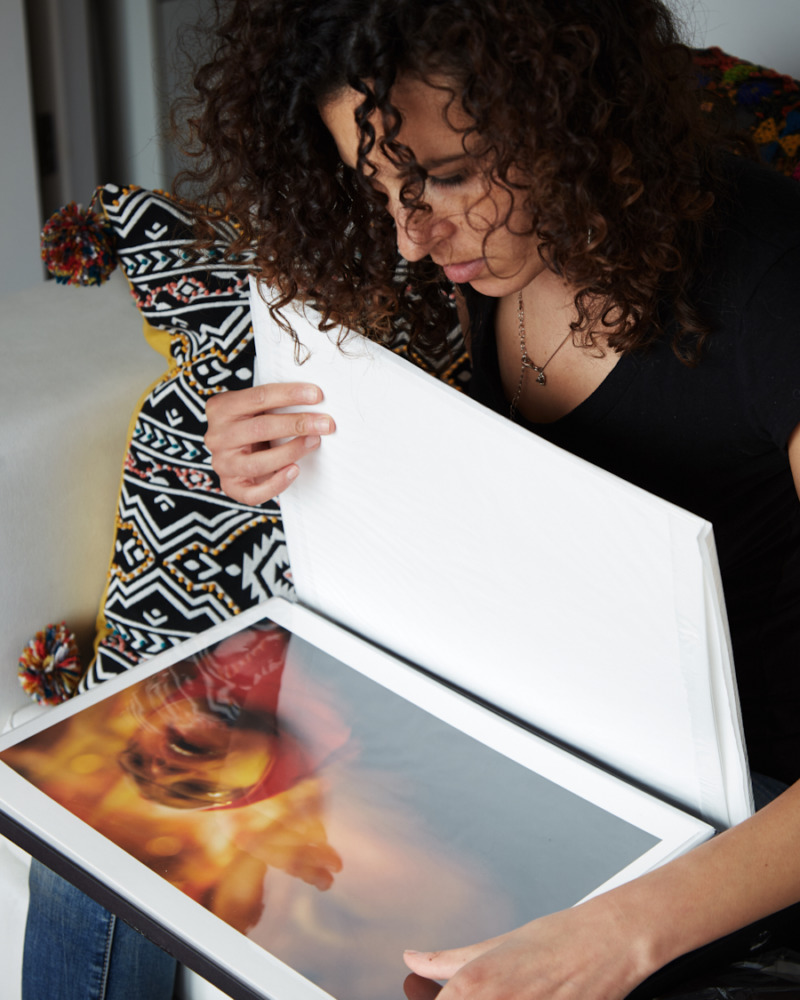
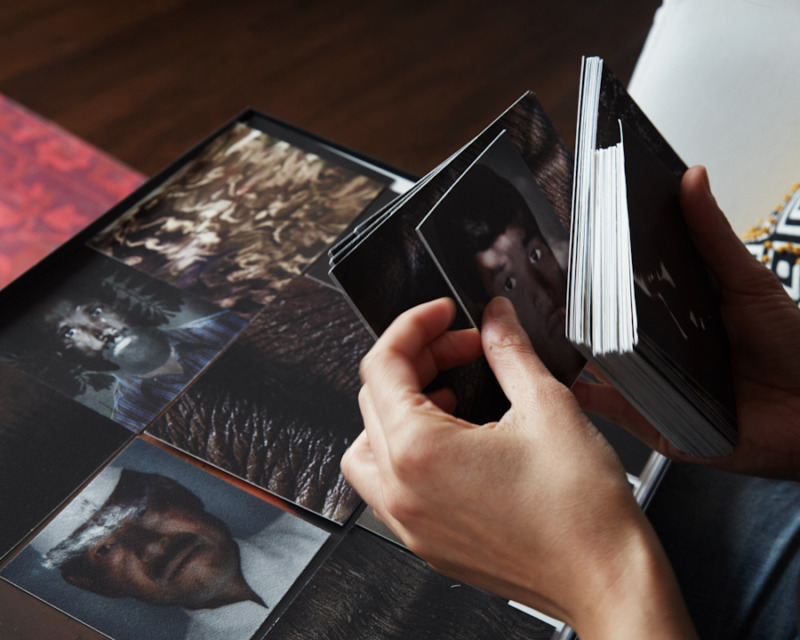
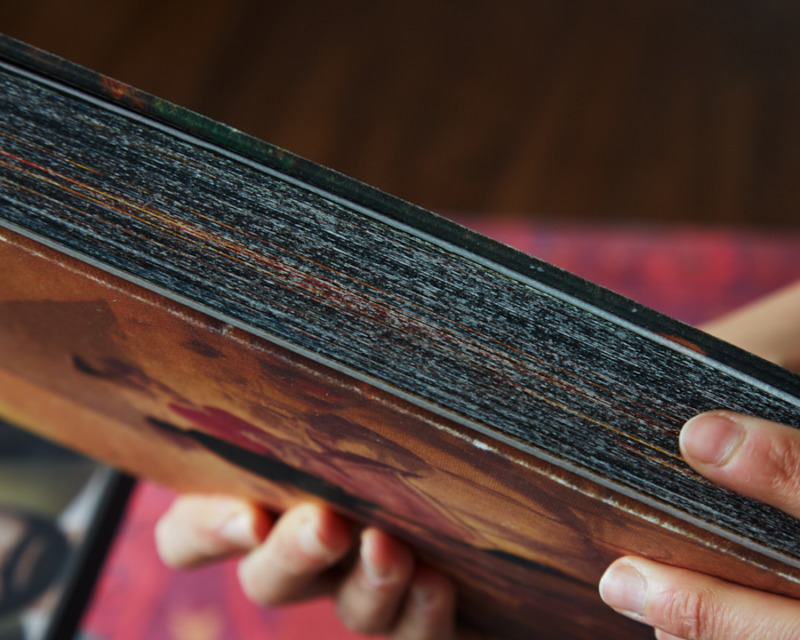
Look around you, everything is so defined. It’s within the boundaries of this reality. I already know this, it’s boring for me. I prefer working outside of that, outside that expectation. For me this is what is interesting about photography, because it provides that alternative to the expected.
What are you searching for in your work? What questions are you looking to answer?
It’s too much pressure to expect to find an answer at the end of it, I learnt that with In the Shadow of the Pyramids, because the answer I found was a disappointing one. I wanted re-establish my relationship with Egypt. It was about connecting with home and but in the end realising, home is not the home I thought it was.
Beyond Here Is Nothing was trying to define, then, what is home? I began from a concrete place of defining home as a place. But as I was working I realised home doesn’t have to be a physical place. Home can be a very poetic concept; it can be an idea, a feeling, a smell. It can be a person you connect with and you feel at home with and it can also be something you carry in yourself. Increasingly, I am more comfortable with the idea that home is something I carry within myself, but I am not entirely there yet. So there’s no answers whatsoever, there are possibilities. I like how the work can present possibilities instead of something definitive.
The next work, I Will Die For You, is about the connection between man and land and in many ways this has the idea of home connected to it as well. The works come in chapters and I feel like after I Will Die For You I will do something about love. I Will Die For You is looking at the love between man and land, looking at farming as a way of life. And after that, looking at love, which for me is everywhere.
What challenges come up again and again in your work?
Trying not to repeating myself, every project deserves its own visual language. What that language that will be and how I will consistently apply it across a body of work so it feels cohesive is always a challenge.
I am usually working on a few things at the same time, I think of the work as a journey. In the Shadow of the Pyramids was the first part, Beyond Here Is Nothing is the second, I Will Die For You will be the third.
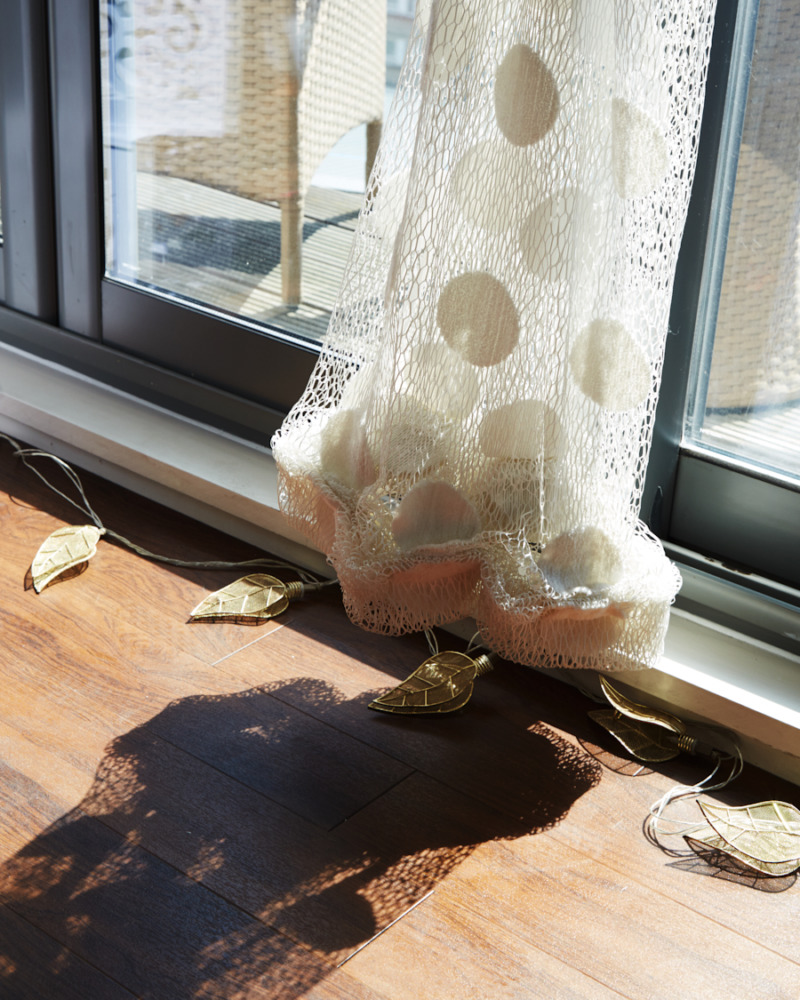
You want to challenge expectations and Beyond Here Is Nothing certainly does that, the reader can layer and remix the pages to create their own journey through the images. Do you prefer presenting you work in a gallery space or photobook?
You get more of the essence of me in a book than in a gallery. In a book I have more control of what I am saying, from the paper to the sequencing. I like that a book stays with you, you can take it with you and keep it. With a gallery I am still getting used to the idea of how the work continue to have a life.
My aim is never to repeat what the book is saying in an exhibition, they have to live independently, but to keep the thread and emotion alive. Once a book is done it brings me personal closure. So then how do I open this space up again, bring up all these vulnerabilities I had in making the work and bring them to a live audience for an exhibition? This is a very different challenge.
With a book I feel a certain sense of anonymity, in a gallery I am more exposed. At the Peckham show the words that were on the bed were “I am lonely seems like the most sinful confession to make.” It was not a very easy thing for me to do. The challenge is to keep pushing myself beyond my comfort level, if I have committed to do a certain body of work I have to accept the repercussions of that, that involves exposing a lot of my insecurities, generally I am a really private person. Photography is the way for me to communicate things that I can’t necessarily articulate otherwise.
Beyond Here Is Nothing conveys of sadness and loneliness. Was the book a way to exorcise these emotions?
My books say how I feel. If I am talking with a friend I am not going to express that so openly, but we all find ways to communicate. It’s not to say I am a sad and lonely person, we all experiences these emotions. Loneliness has been a very significant part of my life, when I first went to America to study I was suddenly removed from my family structure. I moved to England not knowing anybody. So I have learn to build relationships that were not already there. It’s important to talk about these shared experiences, my journey is mine, but people will connect with you and I have had an amazing response to Beyond Here Is Nothing. People have sent me e-mails, that really touches me when the work resonates with people on that level that they take the time to write and share an experience of theirs with me. It says a lot. This is the gift in doing this kind of work. You are being really honest and exposing your vulnerabilities but actually a lot of people experience what you do.
